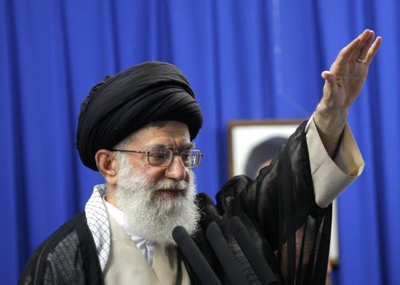Thwarting Iran’s regional dominance
Abdulrahman al-Rashed/Al Arabiya
Friday, 17 July/15
Why would we stand against Iran’s nuclear deal? We support any agreement ending all forms of confrontation with and sanctions on Iran, but the problem lies in the details. If it were a good deal, Iranians and Arabs would be contented neighbors, but it is not.
The Iranian regime is like a monster that was tied to a tree and finally set loose in our region. This means we are on the threshold of a new, bloody era. Verbal promises from Washington will not be enough, and Iranian pledges will not reassure us. The countries of the region have only one choice: to expect the worst-case scenario.
However, every cloud has a silver lining. The withdrawal of the West from the conflict with Tehran may be a good incentive for us to re-examine the rules of confrontation. The challenges are substantial: economic, political, security and military, all interrelated. Without a vital economy, we will not be able to improve other fronts. With the huge void caused by the withdrawal of the West from the conflict with Iran, we need to review our military capabilities according to the new reality.
Tehran does not intend to drop its aims of expanding its regional dominance and destabilizing neighboring countries, taking advantage of the lifting of sanctions. Before the agreement, there was international cooperation for some three decades in the Gulf waters. There was a ban on military deals. Iran was besieged and controlled by a large fleet – this is what led the Iranians to wage war via Hezbollah in Lebanon, Hamas and Islamic Jihad in Palestine, Asaib al-Haq in Iraq, the Houthis in Yemen, and the Syrian and Sudanese regimes.
After the agreement, we face one of two possibilities: Tehran will either change its ways, marking a new era of reconciliation, or it will increase its hostile activities, unencumbered by sanctions and Western involvement in the regional conflict.
Bad intentions
Tehran does not intend to drop its aims of expanding its regional dominance and destabilizing neighboring countries, taking advantage of the lifting of sanctions, which will facilitate the transfer of funds and the purchase and shipment of arms.
Tehran intends to destabilize the region in order to impose submissive regimes. It is using Hezbollah to control Lebanon. It is behind Palestinian division by using Hamas against the Palestinian Authority (PA). Iran is also operating a large network of organizations and militias in Iraq to impose its authority over the country’s institutions. It is behind the Yemen coup through its Houthi representatives, who occupied most of the country.
Iran is using the Sudanese regime for its own purposes, and is using opposition groups to spread unrest in Bahrain. Tehran is responsible for the Syrian regime’s unprecedented crimes. The list of chaos and Iranian agents is very long. Washington believes these activities are temporary as Tehran is using them to force the lifting of sanctions and to reach an agreement. However, we believe it is a fixed policy. Tehran’s dominance will expand and become more dangerous with time, even without direct conflict between us and Iran.
The countries of the region face a large task in thwarting Iran’s activities in Syria, Iraq, Yemen and elsewhere. They should deploy all possible efforts to push Tehran toward genuine reconciliation, not mere maneuvers as it is doing today with the West. However, conflict management will not succeed without improving economic and bureaucratic performance, and developing military and security forces that are necessary in light of today’s chaos and Tehran’s determination to dominate.























